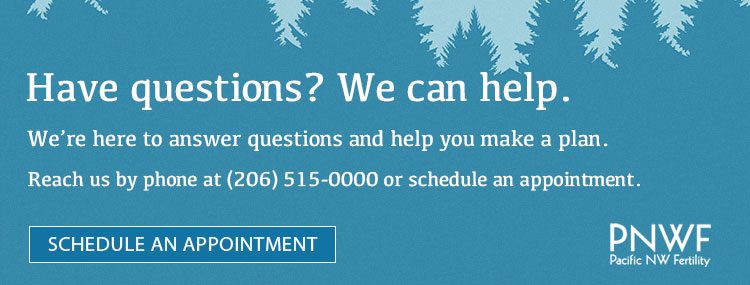Steps for pursuing parenthood on your own.
The decision to become a parent is an enormous one regardless of whether you’re doing it with a partner or alone. Views on single parenthood have changed drastically over the last decade and studies have shown no developmental difference in children from single-parent households. It’s become far more popular for people to seek out fertility treatment on their own without focusing on first finding a partner. If you do want to become a single parent, you will encounter a unique set of choices as you navigate the process. But, with the right team to support you, you can trust in yourself to make the best decisions for you and your future child.
Begin With Fertility Testing
The very first step of the process to become a single parent is to schedule a fertility test. For women this will involve a blood test and potentially a pelvic exam and ultrasound. For men it will be a blood test and semen analysis. If your doctor pinpoints fertility issues they will incorporate that into your treatment as you collaboratively decide on the next steps forward.
Treating Infertility Before You Become a Single Parent
If your fertility test reveals that you may have difficulty conceiving with your own egg or sperm, your doctor will work to treat these issues before moving along to the process of selecting a donor, surrogate, or any other element of your treatment. For women, your treatment may involve hormone therapy to support ovulation in preparation for intrauterine implantation (IUI) or in vitro fertilization (IVF). Your doctor may also need to address blocked or damaged tubes, or you will discuss lifestyle changes to make your chances of conception more likely. For men, a low or poor sperm count will require addressing underlying medical issues, lifestyle changes, and potentially certain treatments to single out the best sperm for use.
Egg Retrieval and Sperm Collection
If your doctor determines that you are able to use your own eggs/sperm, then that will be the next step of the process. If you are a man, your sperm will be collected to prepare for embryo creation in a lab. If you are a woman your eggs will either be retrieved to create embryos for IVF, or if your doctor determines you are a candidate for IUI, then the donor sperm will be placed directly into your uterus.
Selecting a Donor
Selecting a donor or donors when you want to become a single parent is a very personal process. Depending on the results of your fertility testing or the success of embryo creation or implantation, your doctor will help you to determine whether whether using donor eggs and/or sperm is right for you. It’s important to work with a trusted sperm or egg bank that works with fully vetted donors and will help you weigh all your options. These donors will be non-identified, meaning you will not know the name or contact information of the donor, but you will have a full understanding of their medical history and the qualities that make them a great donor. Some people seeking single parenthood choose to use a donation from a friend or family member, which is called a known donor. Once you’ve selected a donor/donors you will begin either IUI or IVF.

Selecting a Gestational Carrier
To become a single parent, men will need to work with a gestational carrier, also known as a surrogate. Women may also work with a surrogate in some circumstances. Working with a surrogate is a highly collaborative process. There will be a legal contract between the two of you and you will both be required to attend counseling. Your doctor will work with both of you to ensure a healthy and smooth pregnancy experience for all involved.
Working With a Trusted Team
The most important element to pursue parenthood, regardless of whether you’re single or coupled, is having an excellent team around you. Luckily, there is now exceptional support for those who want to become a single parent. At PNWF we understand that there is no one path to parenthood, and we are here to support the dreams of all our patients in building a unique family of their own. Reach out to schedule a consultation and learn more about how you can become a single parent.


